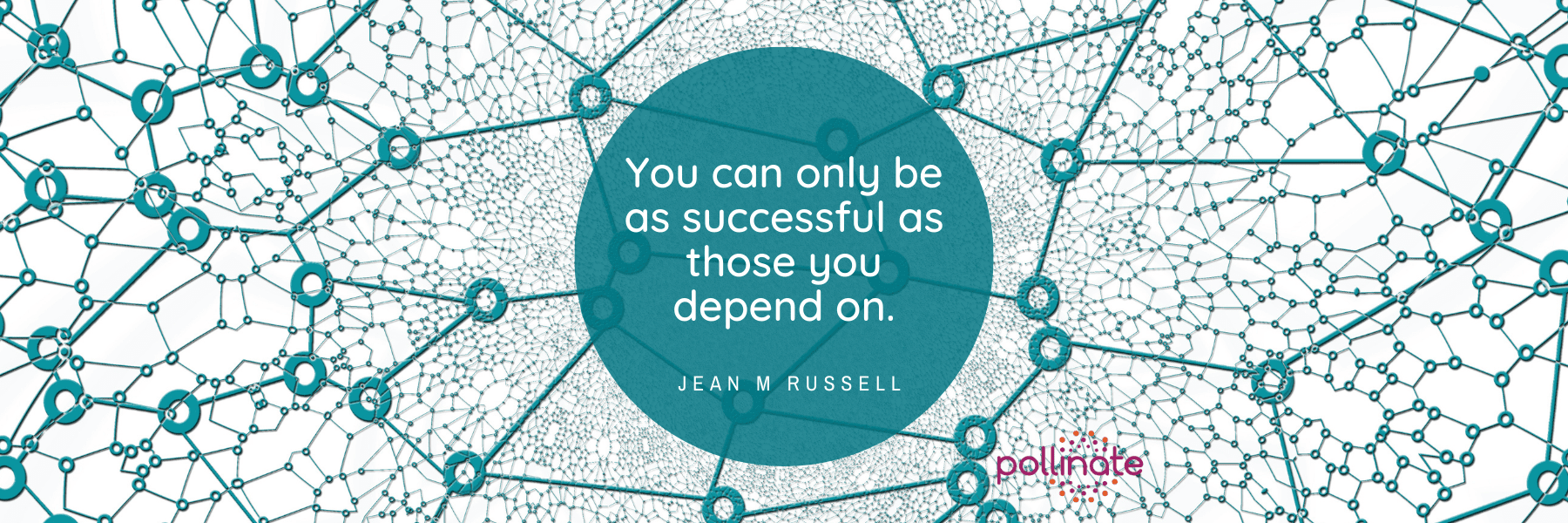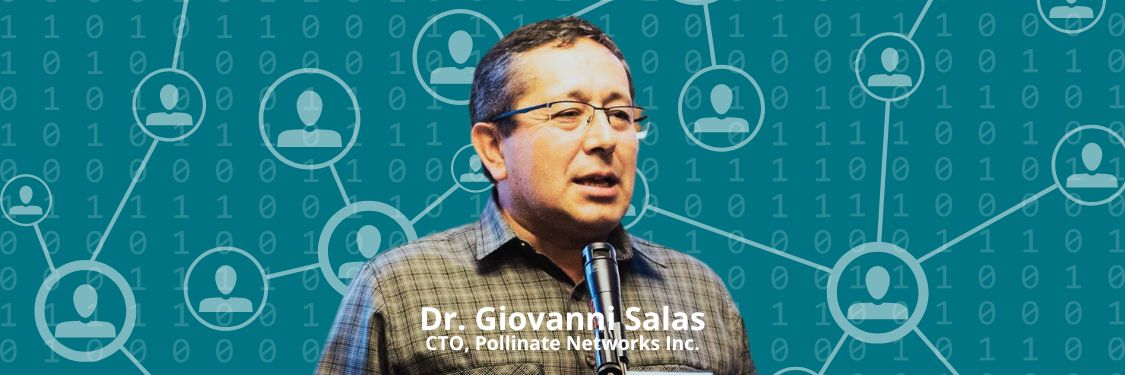
The pandemic caught many of us in the swirl of pushing to be more lean and agile. We had been looking to trim the fat, so to speak. And then came a long cold hard winter. Many of the ways we had assumed stability and optimized our businesses based on that lean stability came under pressure.
How did we get to this difficult place if we were doing everything right in becoming more lean? The waves of organizational development have brought new patterns into the workplace, shifting strategies over time. There was that big push to scale up to bring everything in house to control it. “Efficiencies of scale,” they said. And then the trend shifted to pushing it back out to hire contractors to handle their specialty. Now, here we are. If one doesn’t own the whole system of production, how do we navigate and act strategically in a rapidly changing world?
Welcome to ecosystem engagement
What if the lesson here is not about bringing more of what we depend on under the roof of our own business and more about having the right relationships to activate at the right times? What if our ability to adapt to changes, pandemic or otherwise, comes from the flexibility to activate connections with greater ease? This time the issues were about just-in-time supply chains criss-crossing the planet and localized lockdowns. Next time it might be about localized drought conditions. What does it mean to upgrade our engagement with our ecosystem to have the flexibility to respond to the risks we face in the future? We can’t prepare for all the possible scenarios, but we can build capacity in a shared ecosystem.
What if the lesson here is about having the right relationships to activate at the right times?
Cooperation
Tons of business focus tends to go to competition. So many business plans have a section on competitive analysis and differentiation, but who does cooperative analysis? It is often subtly present in a list of advisors or maybe key relationships or dependencies. What happens when we focus attention on the relationships that make us more likely to be successful rather than the ones we are trying to compete against?
This is the work of ecosystem cooperation. How are we helping each other succeed? How are we creating resilience while staying lean and agile? Hint: resilience and agility are stored in relationships!
Trust
This is usually the moment when someone raises the question of trust in those relationships. We so like to focus on where things go wrong that we seem not to notice how much goes right. Try making a list of all the ways people have cooperated with you this week. Include cooperation such as following the rules while walking and driving in such a way as to not damage your person or your vehicle. How many transactions have you done that went smoothly? For many of us, cooperation is 95% of our experience, yet we focus on the 5% that isn’t working. Or to be less binary about it, most of our experiences tend to be mostly cooperative most of the time. Maybe if we focus on doing more of what works we might get more of it.
Cooperation Analysis
Doing a cooperation analysis means looking at who your organization engages with, where you have agreements (MOUs, for example), and who else might be aligned with your purpose that you could mutually benefit from an alliance with. If we consider the ecosystem around us to be the soil, light, and other living things that support our efforts, what kind of ecosystem are we in? Is this more of a desert condition where everything is hoarding water or are we in a tropical rainforest where even the air seems to be full of life? How healthy is that ecosystem and thus our own ability to contribute to and be fed by it?
The old ways of thinking twisted Darwin’s idea about evolution to focus on brutal competition, but somehow that doesn’t quite explain the long term existence of the three-toed sloth or a sea slug. Maybe not all organizations need to be lions. Of course, perhaps being a lion will get someone on the cover of Forbes, but most business is neither lion nor sloth.
The Indigenous peoples in the land of jaguars say that the existence of the jaguar is a sign of health in the system. This is not a proposal to limit the wild cats! It is an opportunity to focus on your value proposition as a contribution to a larger system and how that larger, wider context can be a resource for your own support and success, if mutuality can be prioritized.
The Social Era
Several years ago, before the pandemic, Nilofer Merchant (and others) started talking about the Social Era: “Smart companies are letting social become the backbone of their business models, increasing their speed and flexibility by pursuing openness and fluidity.” Social media, for all its risks and flaws, acts as a catalyst of one dimension of the social era. The medium is less important than the behavior. Merchant talks about the difference between an 800-pound gorilla and a herd of 800 gazelles. Let’s take that further and focus on the ecosystem rather than the single species. How can we work like a whole meadow or forest together? Who acts like the trees creating the canopy, and who is the moss? What is the mycelium under the forest floor facilitating the communication between many of the species thriving in the forest? How do we take the openness and fluidity that Merchant argues for and connect with others?
Dependencies
You can only be as successful as those you depend on. What are you doing to increase cooperation? Do a cooperative analysis and be sure to include all the parties you depend on and all who depend on your cooperation. What risks are they exposing you to? What risks do you expose others to? What other options do you have? How can you grow ecosystem capacity to be a source of resilience for what you do? Who else can be cultured for future cooperation?
We may have been surprised by this pandemic and managed to struggle through. What can we do to be better prepared for future shocks and to be a better member of our own ecosystem? You might be surprised by what you have to offer that others can benefit from. And others might surprise you with their generosity when everyone is clear about their own value proposition as a cooperator within the ecosystem.
A cooperation analysis will reveal the relationships and opportunities in your ecosystem. It might matter way more than a competitive one when the unexpected arises next time.
 Jean M Russell
Jean M Russell
Jean M Russell works as a social technologist and innovator in organizational development and operations in numerous startups and social enterprises. With Herman Wagter, Jean co-authored Cultivating Flows: How Ideas Become Thriving Organizations, which explored, with leading edge practitioners, what patterns enable healthy organizational emergence. Jean published Thrivability: Breaking Through to a World That Works as well as articles on organizational design strategies, thrivability, innovation, philanthropy, and cultural shifts that have been highlighted in The Economist, Harvard Business Review, and Stanford Social Innovation Review.




